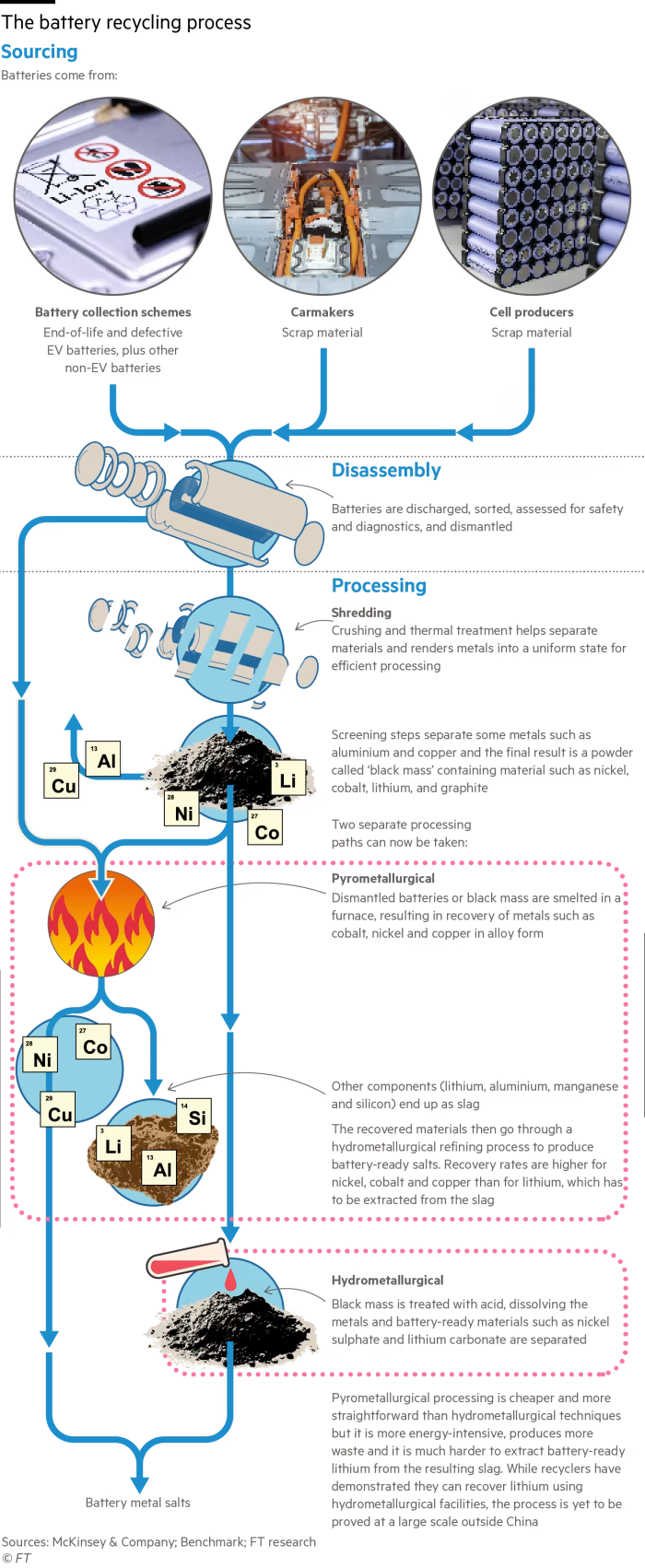Consumption Week 37
My notes from some of the media I consumed this week.
Contents
Why the electric vehicle battery race needs a recycling revolution
https://www.ft.com/content/73138e84-701a-4e75-9ca8-7725d0867eb5
- One model is to have the battery manufacturer, carmaker or a third party own the battery throughout its life. A battery manufacturer could lease the battery to a carmaker, then a consumer, and then reuse or recycle it after it can no longer power a vehicle.
- A battery no longer suitable for use in a vehicle still has the potential to be used for other purposes, ranging from lighting streets and homes to powering appliances or offering energy storage.
Tags: EVs, Batteries, Recycling, Circular Economy
Why the UK’s tax system is broken
- The UK’s tax system is broken due to its lack of progressivity, neutrality, and effectiveness. It focuses on income rather than wealth, resulting in poorer people paying more taxes. Wealth taxes are not implemented effectively, and the council tax is not truly progressive. The system discourages productive work and encourages non-productive wealth accumulation. The income tax system is complicated, with numerous exemptions and complications. The value-added tax (VAT) regime is overly complex. Overall, the UK’s tax system fails to address wealth inequality and is not conducive to economic growth. A potential for change lies with an incoming Labour government.
Tags: Tax, UK
Math Magic
- Most of the video is (as the title suggests) magic tricks that work through simple maths. But the Shakespeare in the Bible coincidence was the bit that was most shocking.
Tags: Maths
[The Human Upgrade with Dave Asprey] Your Home Is Making You Sick: Biohack Your Living Space with Toxin Testing - Ryan Blaser : 1082
- Key things to be aware of: Mould, EMFs (WiFi, induction), air fresheners, lighting (LED flickering, colour temperature), sound
- Airtight is energy efficient but encourages mould growth. Air filters can help.
- Clean doesn’t have a smell. Fragrances are often toxic. Musty often means mouldy.
- https://www.happyhome5.com/
Tags: Health, Home, Cleaning, Mould, EMFs, Lighting, LEDs, Energy Efficiency

